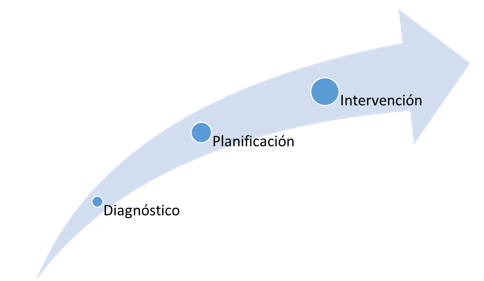Laws of law for sustainable tourism from the protection of natural and cultural resources
Main Article Content
Abstract
Progress, the advanced stage of the crisis, the rise of tourism, environmental management and the laws of law for the sustainability of Tourism in Ecuador, are elements that make up the alignment of sustainable tourism from the protection of natural and cultural resources. . In this context, the objective of analyzing the laws of law in relation to sustainable tourism in Ecuador is pursued, for the good practices of the laws that are studied, a procedure for cooperation in the conservation of natural resources is detached. The research is analytical and descriptive because the constitutional and legal precepts of tourism in Ecuador are analyzed and described. In addition, useful information and knowledge is managed for the critical analysis and interpretation of data. The results obtained lead to the conclusion that tourism is a complex phenomenon that touches various economic, cultural, social, legal, and environmental perspectives, which deserve to be addressed, for the achievement of tourism sustainability in the areas that constitute a tourist attraction, specifically it deserves the protection of nature to configure the Good Living. This is given by the significant importance that tourism has in the Ecuadorian productive matrix, when considering basic macroeconomic indicators, such as the Gross Domestic Product and the generation of employment.
Article Details

This work is licensed under a Creative Commons Attribution-NonCommercial 4.0 International License.
References
Arteaga-Cruz, E. L. (2017). Buen Vivir (Sumak Kawsay): Definiciones, crítica e implicaciones en la planificación del desarrollo en Ecuador. Saúde debate, 41 (114), 907-919. http://DOI.org:10.1590/0103-1104201711419
Cóndor Bermeo, V. (2018). Turismo y desarrollo sostenible. Fundamentación teórica para la construcción de un modelo de desarrollo turístico. Universidad y Sociedad, 10(2), p.p. 47-52. Recuperado de: http://rus.ucf.edu.cu/index.php/rus
Congreso Nacional. (2002). Ley de Turismo. Registro Oficial Suplemento 733, de fecha 27-12-2002. Recuperado de: https://www.turismo.gob.ec/wp-content/uploads/2015/04/LEY-DETURISMO.pdf
Congreso Nacional. (2014). Ley de Turismo. Registro Oficial Suplemento 733, Recuperado de: https://www.turismo.gob.ec/wp-content/uploads/2015/04/LEY-DETURISMO.pdf
Corte Constitucional del Ecuador. (2015). Sentencia número 16-16-JC/20. Derechos de la naturaleza. Recuperado de: https://www.derechosdelanaturaleza.org.ec/wp-content/uploads/casos/Ecuador/Juridisprudencia/Sentencia%20166-15-SEP-CC.pdf
Corte Constitucional del Ecuador. (2020). Sentencia número 16-16-JC/20. Medidas cautelares. Recuperado de: https://portal.corteconstitucional.gob.ec/FichaRelatoria.aspx?numdocumento=16-16-JC/20
Del Ecuador, C. (2008). Asamblea Nacional. Quito. Ecuador.
Figueroa, E. Mendoza, M., Pérez, F. Godínez, L. (2015). ¿El turismo es una opción para “aliviar” la pobreza? Spanish Journal of Rural Development, Vol. VI (Special 1) 17-28.
Hernández-Sampieri, R., y Torres, C. P. M. (2018). Metodología de la investigación (Vol. 4). México^ Ed. F DF: McGraw-Hill Interamericana. Recuperado de: https://dspace.scz.ucb.edu.bo/dspace/bitstream/123456789/21401/1/11699.pdf
Herrera Camacho, M. J. (2020). Análisis de las políticas públicas de turismo en Ecuador: periodo 2009-2013 (Tesis de grado, Universidad Andina Simón Bolívar, Quito, Ecuador). Recuperado de: https://repositorio.uasb.edu.ec/handle/10644/7769
Madroñero-Palacios, S, y Guzmán-Hernández, T. (2018). Desarrollo sostenible. Aplicabilidad y sus tendencias. Tecnología en Marcha. 31(3), p.p. 122-130. https://doi.og:10.18845/tm.v31i3.3907
Ministerio del Turismo del Ecuador (2018). Procedimiento para la cooperación de conservación de los recursos naturales. Recuperado de https://drive.google.com/file/d/1jsrC-rWH8AKZEhkfPmJvnt7VTQsibQKN/view.
Organización de las Naciones Unidas. (2015). Objetivos de Desarrollo Sostenible. La Agenda para el Desarrollo Sostenible. Recuperado de https://www.un.org/sustainabledevelopment/es/development-agenda/
Organización Mundial del Turismo. (2009). Antecedentes del Código Ético Mundial para el Turismo. Recuperado de https://www.unwto.org/es/antecedentes-del-codigo-etico-mundial-para-el-s%20como%20internos
Pérez-Morón, L. Y., y Cardoso-Ruiz, R. P. (2014). Construcción del Buen Vivir o Sumak Kawsay en Ecuador: una alternativa al paradigma de desarrollo occidental. COATEPEC, año XIII, 26, p.p. 49-66.
Pilay Quirumbay, G. L. (2021). Derecho constitucional legislación turística operadora turística (Tesis de grado, Universidad Estatal Península de Santa Elena, Libertad, Santa Elena, Ecuador). https://repositorio.upse.edu.ec/handle/46000/5710
Ramírez Aráuz, Y. (2013). Examen de Legislación turística y ambiental del 2012-1s de la 2° evaluación. https://www.dspace.espol.edu.ec/handle/123456789/23704
Ruperti, L., Santiago, L. Montilla, A. de J. (2021). El Turismo Sostenible en Ecuador: reflexiones constitucionales y legislativas, Revista de Ciencias Sociales y Económica – UTEQ. Volumen 6, Número 1.

